Royal Navy aircraft carrier HMS Prince of Wales is on its way to Loch Long for ammunitioning, trials, and defence-related activities.
The vessel left Portsmouth earlier this week and is expected to dock at the Glen Mallan jetty in the coming days.
This will be the third visit by a Queen Elizabeth-class carrier to the Clyde this year, with Glen Mallan continuing to play a significant role in supporting the Royal Navy’s operations. The jetty, which is linked to the Glen Douglas munitions depot, underwent a £69 million upgrade in 2021.
Tug vessels recently travelled from Portsmouth to assist with HMS Prince of Wales’ arrival, demonstrating the logistical coordination required for such operations. The Royal Navy has indicated that the visit will involve a combination of trials and ammunitioning, reinforcing the carrier’s readiness for future missions.
The Northern Ammunition Jetty at Glenmallan, on the shores of Loch Long in Scotland, is a vital facility for the Royal Navy, enabling the resupply of ammunition to its surface fleet, including aircraft carriers HMS Queen Elizabeth and HMS Prince of Wales.
Refurbished in a £67 million project led by VolkerStevin and Defence Infrastructure Organisation (DIO), the jetty was handed over for operations in 2022 after an extensive overhaul. Originally built in the 1970s, the jetty had reached the end of its economic life and required a complete reconstruction to support modern naval operations.
The refurbishment began in 2019 and included demolishing the old structure and replacing it with a new 135-metre-long jetty supported by 127 steel piles driven into the loch bed. Additional upgrades included five mooring dolphins connected by a pedestrian bridge, modular fender spacers to accommodate the carriers’ overhanging flight decks, and the installation of modern pedestal cranes for efficient loading and unloading. Navigation aids powered by solar energy, perimeter security enhancements, and new buildings for offices and storage completed the transformation.
Environmental considerations were central to the project. To protect marine life in Loch Long, noisy piling works were closely monitored by observers using underwater listening devices, and work was halted if marine mammals were detected nearby. Capture blankets were used during demolition to prevent debris from entering the loch, and waste materials were removed by barge for recycling. These measures ensured minimal environmental disruption while delivering a state-of-the-art facility.
The jetty’s refurbishment has significantly extended its operational life by an estimated 50 years, cementing Glenmallan’s role as a key logistical hub for the Royal Navy. The project received industry recognition, winning awards such as ‘Best Infrastructure Project’ at the Scottish Civil Engineering Awards and ‘Upgrade and Renewal Project’ at the British Construction Industry Awards in 2021.
At the UK Defence Journal, we aim to deliver accurate and timely news on defence matters. We rely on the support of readers like you to maintain our independence and high-quality journalism. Please consider making a one-off donation to help us continue our work. Click here to donate. Thank you for your support!


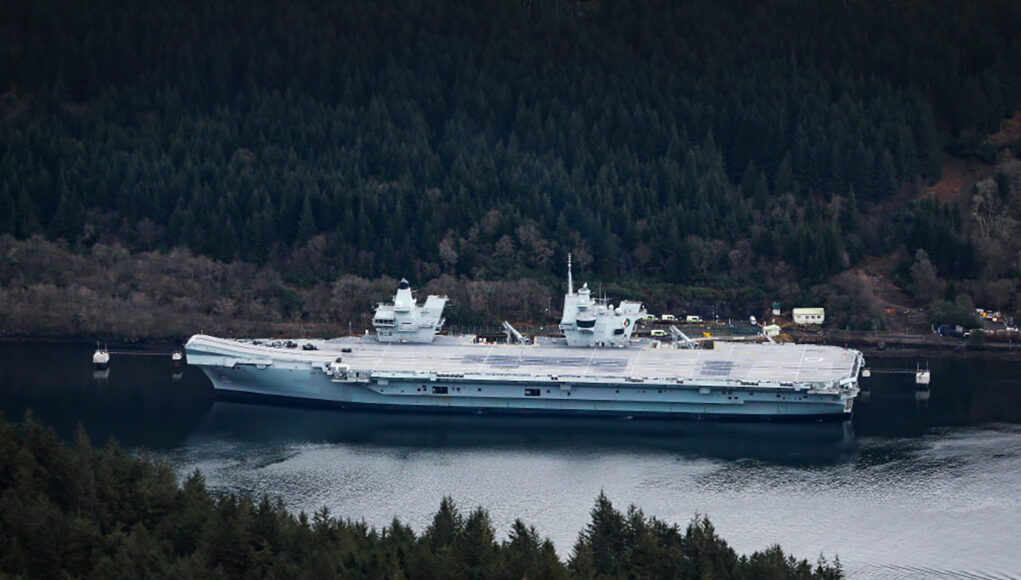
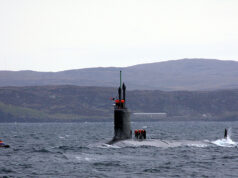
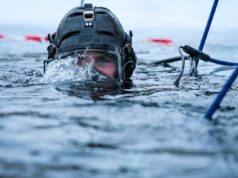
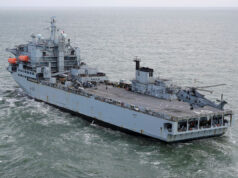
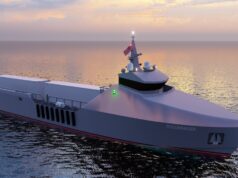

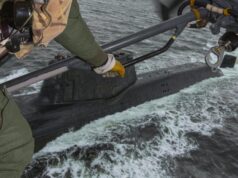

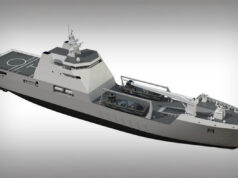

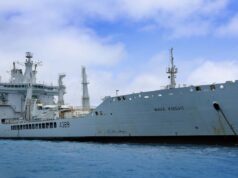

No need for the russians to send spy planes , when everything they need to know is easily reading on the internet.
Have you been told what weapons will be loaded?
In what quantity?
This could either be several tons of Paveway and AMRAAM or a couple of rifle magazines (I exaggerate).
It’s possible to work out if you know what places store “complex” weapons and which do not. That data is available.
Not true at all.
Although most of our military installations appear on Ordnance Survey maps now, there was a time when they did not, and some places are still not openly advertised.
A function at a particular location is another matter entirely and might not be public knowledge.
DM Glen Douglas itself is already well publicised as being the UK ( North ) bomb stock. It is linked to a rail line and much of the facility is beneath the hills.
And we know where the Russian ammunition stores are as well, yet the spy planes and satellites still fly.
They could simply be loading pretzels at Glen Mallan. In which case spy planes, internet or whatever would do the Russians absolutely no good at all. Besides generally speaking the internet is short on facts but big on opinion and guesswork. That’s my take on it anyway.
Meanwhile from Combating Terrorist Center at West Point. October Issue.
Meanwhile from Combating Terrorist Center at West Point. October Issue.
Aye, heard that before. As warfare has forever been: measure – countermeasure – different measure – countermeasure – and so on, throughout history. Militaries adapt, and if that means withdrawing for a time, so be it.
The Middle East is currently like Ukraine, if you strip away the carnage and suffering. They’re both petri dishes. Very keenly scrutinised experiments in what constitutes warfare in the 21st century. Lessons will be, and are being learned. All round.